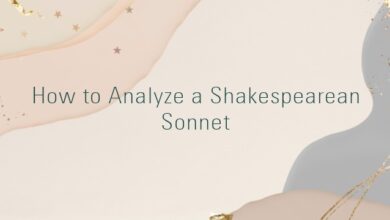
William Shakespeare – Sonnet 88
When thou shalt be disposed to set me light,
And place my merit in the eye of scorn,
Upon thy side, against myself I’ll fight,
And prove thee virtuous, though thou art forsworn.
With mine own weakness being best acquainted,
Upon thy part I can set down a story
Of faults concealed, wherein I am attainted;
That thou in losing me shalt win much glory:
And I by this will be a gainer too;
For bending all my loving thoughts on thee,
The injuries that to myself I do,
Doing thee vantage, double-vantage me.
Such is my love, to thee I so belong,
That for thy right, myself will bear all wrong.
This is another of those sonnets which look to the future, and it is placed at this juncture because, as with 49, the number is thought to be of some significance. 49 is one of the climacteric numbers, and 88, being 8 x 11, was no doubt also thought to have some critical significance. Perhaps double eight in itself (i.e two eights placed side by side), was symbolic of a union between humans, as the number 8 looks slightly like a human figure. HV claims that much ingenuity is expended in doubling words and phrases, culminating in ‘vantage, double-vantage’ in line 12. However it must be admitted that the repetitions are not all that obvious, although the entire sonnet does mimic 49 and repeats the arguments that are set out there. (The two sonnets are given at the bottom of this page).
The poet undertakes to defend the beloved when, in the fulness of time, he himself will be cast aside and denigrated as an object unworthy of love. Since he is so well acquainted with his own faults he can use that knowledge to justify the future desertion. What is more, since the youth’s abandonment of him will seem like virtue and acquire him glory, the speaker will benefit too. For any benefit that accrues to the beloved is a benefit also to the one who loves him. Such is the contradictory nature of love that all wrong becomes right and all wrongs can be borne for the sake of the loved one, and become rights in themselves.
The 1609 Quarto Version
WHen thou ſhalt be diſpode to ſet me light,
And place my merrit in the eie of skorne,
Vpon thy ſide,againſt my ſelfe ile fight,
And proue thee virtuous,though thou art forſworne:
With mine owne weakeneſſe being beſt acquainted,
Vpon thy part I can ſet downe a ſtory
Of faults conceald,wherein I am attainted :
That thou in looſing me,ſhall win much glory:
And I by this wil be a gainer too,
For bending all my louing thoughts on thee,
The iniuries that to my ſelfe I doe,
Doing thee vantage,duble vantage me.
Such is my loue,to thee I ſo belong,
That for thy right,my ſelfe will beare all wrong.
Commentary
1. When thou shalt be disposed to set me light,
When thou shalt be dispos’d = when your mind is set upon, when you become inclined to.
to set me light = to belittle me, to treat me with contempt.
Nearly all the verbs in the sonnet are in the future tense, indicating that the event of separation and recrimination has not yet occurred. The poet is either unsure of his current status in the eyes of the beloved, or merely wishes to prepare for the rejection since he suspects it will happen, and he is setting himself the task of defining his future reactions. We may imagine that some suggestion of a parting has been raised and discussed, perhaps in jocular company, perhaps in a more intimate setting. This and the subsequent two poems provide the poet’s answer to the proposed severance.

2. And place my merit in the eye of scorn,And hold my merits up for ridicule. The scorn could be that shown by the beloved, or that of others who are invited by the beloved to ridicule the speakers merits. The phrase has a biblical ring to it, and suggests Job cast out and scorned:
I am as one mocked of his neighbour, who calleth upon God, and he answereth him: the just upright man is laughed to scorn.
Job.12.4.
Also it echoes the words of the Psalms:
All they that see me laugh me to scorn: they shoot out the lip, they shake the head, saying,
He trusted on the LORD that he would deliver him: let him deliver him, seeing he delighted in him.
But thou art he that took me out of the womb: thou didst make
me hope when I was upon my mother’s breasts. Ps. 22.7-9.
But perhaps the most abiding image is that of the suffering Christ, he who lays down his life because he so loved the world and man. The phrase laugh to scorn is used of Christ several times, for example when he brings back to life the daughter of a ruler who had asked for his aid to save her:
He said unto them, Give place: for the maid is not dead, but
sleepeth. And they laughed him to scorn. Matt.9.24.
The poet here, as also in the other poems of subservience in this group (87-90) assumes the mantle of the Redeemer who allows himself to be mocked and cast aside as Christ did:
And when they had platted a crown of thorns, they put it upon
his head, and a reed in his right hand: and they bowed the
knee before him, and mocked him, saying, Hail, King of the Jews!
And they spit upon him, and took the reed, and smote him on
the head.
And after that they had mocked him, they took the robe off
from him, and put his own raiment on him, and led him away to
crucify him. Matt.27.29-31.3. Upon thy side, against myself I’ll fight,Upon thy side – the imagery is mainly that of a court of law, rather than a battlefield. prove, forsworn, upon thy part, attainted are all elements of legal terminology. There is however more than a hint of military belligerence, or perhaps jousting and duelling, as a result of fight, forsworn, win much glory, injuries, vantage. Some of the terms, such as right, wrong, gainer are no doubt common to both disciplines.4. And prove thee virtuous, though thou art forsworn.though thou art forsworn = even though, if the situation should arise (of you deserting me), you would be the one who broke your promises. forsworn = perjured. Although HV sees this phrase as ‘a quiet bombshell’ the grammar does not force us to read it as being a definitive statement. It should be read more as a subjunctive – ‘Even though you were to be forsworn, (though indeed you might not be), I would nevertheless prove you to be virtuous’.5. With mine own weakness being best acquainted,weakness = sins, faults. Perhaps also the meaning ‘frailty, vulnerability’ is also intended. There is a strangely Freudian prescience in these words, since most people find it difficult to recognise their own faults. The poet acknowledges that they are concealed, but that he is guilty of them (attainted, l.7.). There is also probably an element of the old philosophy hinted at here, the Ancient Greek maxim, gnothi seauton – ‘Know thyself’.6. Upon thy part I can set down a storyUpon thy part = on your side, in fighting for you, in acting as your legal defendant. However there is a contrary meaning to these two lines (6-7) lurking very close to the surface, i.e. ‘I can tell a story about you of your concealed faults for which I stand now accused’.
set down a story = tell a tale, give an account of.7. Of faults concealed, wherein I am attainted;faults concealed = hidden vices.
attainted = found guilty and therefore condemned. (See OED attaint.v.6., and attainted 2.). See also the note above to line 5.8. That thou in losing me shalt win much glory:That = with the result that;
losing me = suffering the loss of me, abandoning or discarding me; diminishing me in the estimation of the world; setting me free (from to loose; the spellings of lose and loose were interchangeable). Most commentators give also the sense of ‘destroying, ruining me’ but it is doubtful if that is the primary meaning. The presence of win and gainer immediately after indicates that the meaning is the most common modern one of ‘to be deprived of, to suffer loss’, i.e. the opposite of ‘to keep’. There are over 200 uses of the word in the Sh. corpus, and mostly they relate to loss of battles, honour, maidenhead, money, title, things. Typical are the following:
…..This course I fittest choose;
For forty ducats is too much to lose. CE.IV.3.90-1.
CLEO What should I do, I do not?
CHAR In each thing give him way, cross him nothing.
CLEO Thou teachest like a fool; the way to lose him.AC.I.3.9-10. (Charmian advises Cleopatra how to keep Antony).9. And I by this will be a gainer too;by this = by proving this, that the fault is mine.10. For bending all my loving thoughts on thee,bending = directing, focusing. Shakespeare also used the word often in connection with bending the knee in subservience. See the note to line 2 above and the NT passage on bowing the knee before Christ.11. The injuries that to myself I do,This parallels line 11 of Sonn.49 – And this my hand, against my self uprear.Perhaps the double was intentional, giving two elevens to underline the position of the sonnet, or to refer the reader back to 22, with its fateful warning:
Presume not on thy heart when mine is slain,
Thou gav’st me thine not to give back again. 22.12. Doing thee vantage, double-vantage me.Doing thee vantage = helping you, giving you the advantage. OED.1.a. defines vantage as ‘advantage, profit, benefit, gain’. There is also a military connection, but here it is not predominant.
double vantage me = gives me a double benefit. The doubling of the benefit is presumably the result of the lover being also in the heart of the beloved, so the two hearts, being at the same time themselves and the other’s, are each individually doubly advantaged.13. Such is my love, to thee I so belong,to thee I so belong = I belong so utterly and completely to you. The line echoes for I love you so of 71 and the couplet of 36 & 96:
But do not so; I love thee in such sort
As, thou being mine, mine is thy good report.14. That for thy right, myself will bear all wrong.
for thy right = to prove you in the right; to ensure that you come to no harm. bear = endure. Also with a suggestion of ‘bare’ all wrong, expose all wrongdoing. The two words were indistinguishable in spelling.
| 49 | 88 | |
| Against that time, if ever that time come, When I shall see thee frown on my defects, When as thy love hath cast his utmost sum, Called to that audit by advis’d respects; Against that time when thou shalt strangely pass, And scarcely greet me with that sun, thine eye, When love, converted from the thing it was, Shall reasons find of settled gravity; Against that time do I ensconce me here, Within the knowledge of mine own desert, And this my hand, against my self uprear, To guard the lawful reasons on thy part: To leave poor me thou hast the strength of laws, Since why to love I can allege no cause. | When thou shalt be disposed to set me light, And place my merit in the eye of scorn, Upon thy side, against myself I’ll fight, And prove thee virtuous, though thou art forsworn. With mine own weakness being best acquainted, Upon thy part I can set down a story Of faults concealed, wherein I am attainted; That thou in losing me shalt win much glory: And I by this will be a gainer too; For bending all my loving thoughts on thee, The injuries that to myself I do, Doing thee vantage, double-vantage me. Such is my love, to thee I so belong, That for thy right, myself will bear all wrong. |






